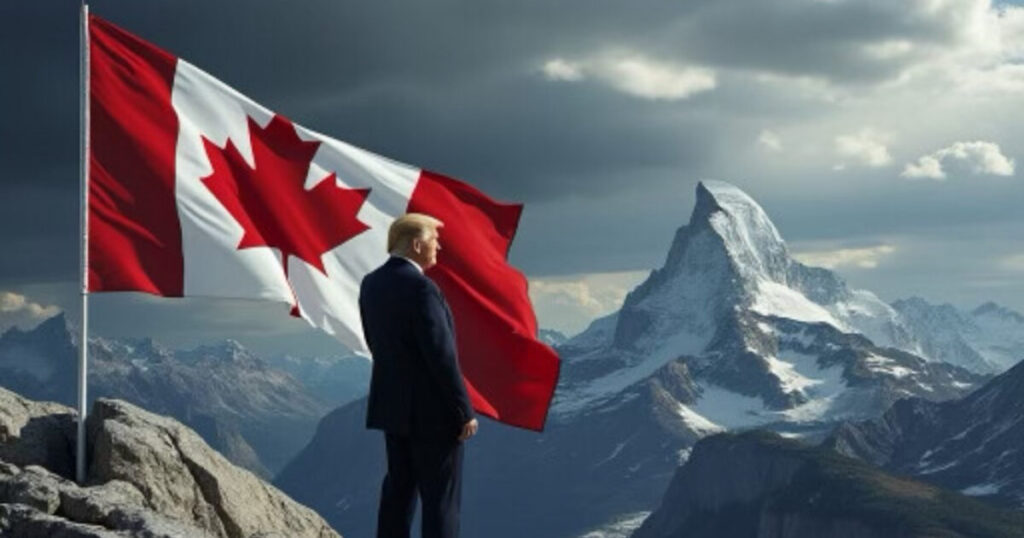Former President Donald Trump has made headlines again with provocative remarks about Canada, as he openly suggested that the country should consider becoming the 51st state of the United States. Trump shared his thoughts on his social media platform, Truth Social, proclaiming that Canada receives over $100 million annually in U.S. subsidies, questioning the rationale behind it. His statement sparked a mix of humor and concern, with Trump asserting that many Canadians would benefit from such a transition by saving on taxes and receiving better military protection. This assertion reflects Trump’s broader views on trade and subsidies, particularly his tendency to emphasize a more isolationist approach to international relationships.
The issue escalated following Trump’s decision to impose a 25% tariff on all goods imported from Canada and Mexico, a move he made in response to what he described as an “illegal alien invasion.” This bold initiative drew the attention of Canadian Prime Minister Justin Trudeau, who quickly traveled to Florida to engage in discussions with Trump at his Mar-A-Lago estate. Despite the serious tone surrounding the tariffs, Trump portrayed the meeting as “productive,” indicating a willingness to negotiate while also injecting humor into the dialogue. Trump’s rhetoric often blends policy discussions with confrontational and comedic elements, a tactic that keeps him in the public eye.
During his meeting with Trudeau, Trump reportedly made light of the Canadian economy’s reliance on U.S. economic support, suggesting that if Canada could not sustain itself without this financial aid, perhaps it should seriously contemplate joining the U.S. as its 51st state. This remark implies a significant skepticism about Canada’s economic independence, positioning it as almost entirely reliant on its neighbor to the south. Trudeau did not publicly react to this suggestion with seriousness, viewing it as a jest, but the underlying implications of such comments are worth noting, as they reflect the burgeoning tensions between the two nations.
In response to Trump’s previous comments, Trudeau attempted to turn the narrative in his favor by branding himself as a “proud feminist” and asserting that women’s rights are threatened by Trump’s leadership and Trumpism more broadly. This rhetorical tactic seems aimed at framing Trump’s policies as regressive, thereby appealing to liberal sentiments within Canada and emphasizing a moral stance against such ideologies. However, the effectiveness of this strategy is debatable, especially given the economic interdependencies between Canada and the U.S., which are complicated by trade discussions and the potential fallout from tariffs.
Ontario Premier Doug Ford also weighed in on the discussion, threatening to cut off fuel supplies to the U.S. if tariffs were imposed. However, analysts suggest that this tactic is unlikely to yield results since the U.S. market absorbs over 75% of Canada’s exports, making such a move more damaging to Canada than to the U.S. The interconnections between the U.S. and Canadian economies are stark, making any unilateral actions complex and risky for either side. Trump’s aggressive stance indicates a willingness to use tariffs as a negotiating tool and demonstrates a transactional approach to international relations.
In summary, Trump’s recent comments and actions regarding Canada illustrate the tensions that can arise from differing national policies and economic dependencies. His blend of humor and provocation serves to engage both his base and his adversaries, while also highlighting significant trade issues that need to be navigated carefully. As both leaders attempt to manage their countries’ complicated relationship, the discourse surrounding sovereignty, economic support, and international collaboration will continue to evolve in response to these challenges. Whether Trump’s strategy will yield positive outcomes for American and Canadian relations remains to be seen, particularly as both nations navigate an increasingly interconnected global landscape.

